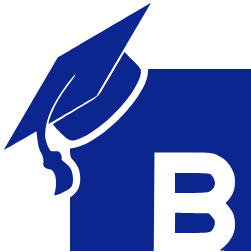The Brevet de Technicien Supérieur (BTS) provides students with recognized training that’s well suited to the world of work. With almost 200 specialties available in the agricultural, industrial and tertiary sectors, the BTS provides rapid access to a national state diploma at bac+2 level. In this article, we’ll explore the characteristics of the BTS, its balance between theory and practice, the exams and admission procedures, as well as professional outlets and opportunities for further study after graduation. Discover how the BTS can be a real springboard to professional excellence, opening up multiple prospects for students wishing to succeed in their academic and professional careers.
BTS training: a recognized and suitable diploma
The BTS is a well-recognized diploma for students looking for solid training without the need for lengthy studies. Available in almost 200 specialties, this two-year course (sometimes preceded by a refresher year) offers 120 ECTS credits and combines theory and practice. Its content is regularly updated to meet the needs of professional sectors. Thanks to internships, students develop concrete skills that are in demand on the job market.
A balance between theory and practice
One of the most attractive aspects of the BTS is its balance between theory and practice. Designed for students who appreciate the practical side of learning, the BTS effectively combines academic knowledge with practical applications in the professional world.
During their training, students take part in work placements, enabling them to put into practice the skills they have learned in the classroom and develop concrete professional experience. These internships play an essential role in preparing students to enter the job market with confidence and competence. Thanks to these real-life situations, BTS graduates are often appreciated by employers for their ability to adapt quickly and effectively to the demands of the professional environment.
The combination of theory and practice within the BTS ensures that students receive a complete and balanced training, favoring their successful professional integration in a wide range of business sectors.
The BTS: a demanding course
The BTS is renowned for being a demanding course that demands serious commitment from students. With an intensive pace of study, including an average of 30 to 40 hours of classes per week, as well as homework, assignments and internships, students need to be rigorous and organized to succeed. However, this sustained effort is rewarded by solid professional preparation and greater employability at the end of the program.
BTS subjects vary according to the specialization chosen, but some subjects are common to all streams, such as French, modern languages and law. This enables students to acquire cross-disciplinary skills that are essential in the world of work. The BTS exams, whether written or oral, can be a challenge for some, but they offer an opportunity to demonstrate their expertise and mastery of the knowledge acquired throughout their training. Students therefore need to plan ahead and prepare methodically to pass these crucial exams, which have a direct impact on whether or not they obtain their diploma.
BTS exams and admission procedures
The BTS exams are an essential part of the diploma process. Composed of written and oral tests, some take place during the course, while others are held at the end of the second year. These comprehensive and rigorous assessments measure the skills acquired by students and their ability to apply them in a variety of professional contexts. To pass these tests, methodical organization and efficient time management are crucial, as they require serious and thorough preparation.
Admission to the BTS is based on the candidate’s academic record, profile and motivations. Unlike some other diplomas, it is not necessary to have passed the baccalauréat to enroll in a BTS. However, the choice of specialty depends on the area of specialization the student wishes to pursue. Some specializations may be more selective than others, depending on the demand from applicants and the capacity of establishments. Students should therefore emphasize their academic background and career plans when applying to maximize their chances of admission to the specialty of their choice.
Career opportunities after a BTS
Students graduating from a BTS have a wide range of opportunities available to them after graduation. Over 56% of them opt for direct entry into the professional world. Thanks to their well-balanced theoretical and practical training, BTS graduates are highly sought-after by employers in a wide range of sectors. They can move into technical or administrative positions, depending on their specialization, and their work experience during internships reinforces their attractiveness on the job market.
On the other hand, some BTS graduates choose to continue their studies to further specialize or broaden their skills. They can go on to study for a professional license, a final year of a Bachelor’s degree, a business school, an engineering school or a university Master’s degree. Some also opt for the Institut d’Administration des Entreprises (IAE), which offers courses in management and administration, ideal for those wishing to move into positions of responsibility. This diversity of options enables students to build a career path tailored to their professional ambitions, and access high value-added positions in the world of work.
BTS: what you need to know
As a springboard to professional excellence, the Brevet de Technicien Supérieur (BTS) offers training that is recognized and adapted to the world of work. With its diversity of specialties and balance between theory and practice, the BTS prepares students for successful careers in a wide range of sectors. The BTS’s demanding examinations and attractive career prospects make it a wise choice for those wishing to enter the workforce quickly, or to pursue higher education to specialize further. By opting for the BTS, students can build a promising future aligned with their professional aspirations and goals.


Leave a Reply